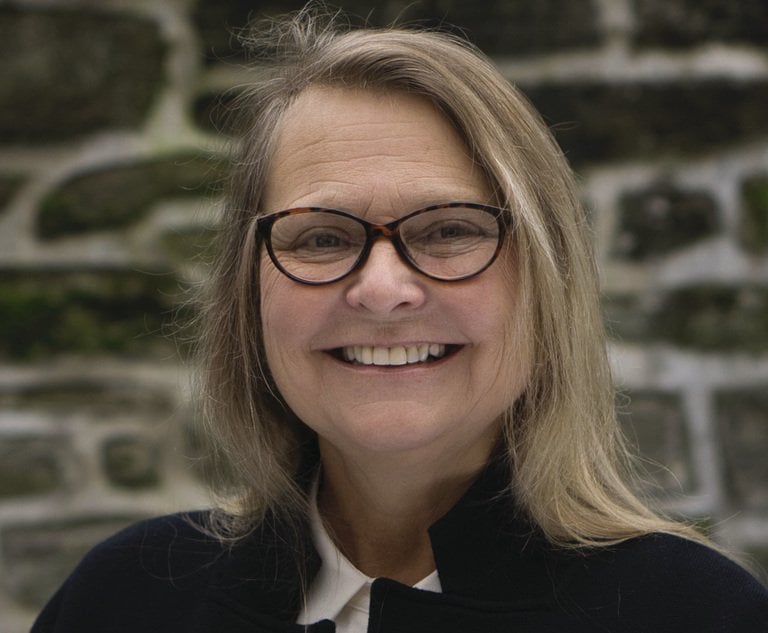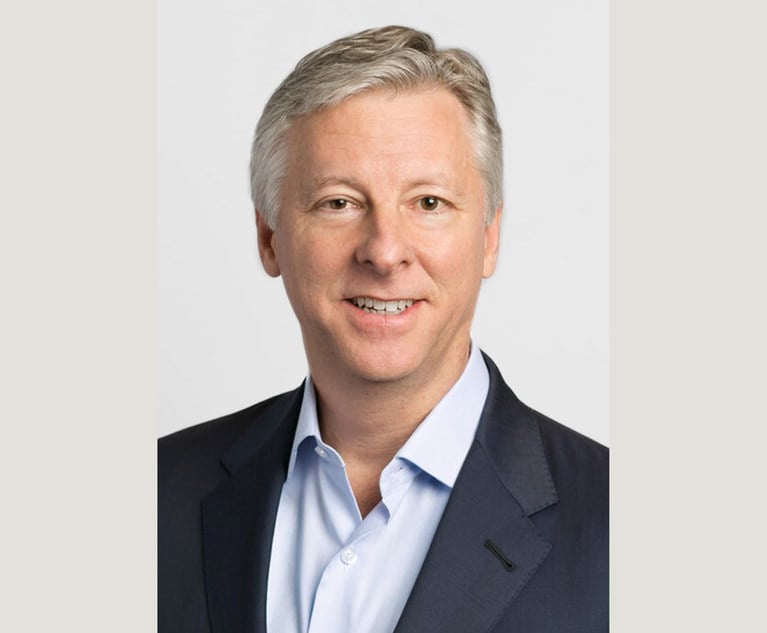Candidate: Barbara Thomson
Court: Philadelphia Municipal Court
Party: Democrat
Philadelphia Bar Association Rating: Recommended
The following has been edited lightly for length and style.
The Legal Intelligencer: How would you describe your judicial philosophy?
Thomson: My judicial philosophy is to treat everybody with respect, fairness and dignity; and listen carefully to the circumstances that brought the people to court. In general, I see myself as a judicial activist; a loose constructionist; and that the Constitution is a living document. However, I see myself responding to the circumstances so that justice prevails rather than adhering to a particular philosophy.
The Legal: What makes you the best candidate for the role?
Thomson: My passion for public service over the past 35 years has never waned. I have vast experience with every level of government and believe that the Municipal Court is the most important court in our city. I also believe I have demonstrated with my 35 years of public service working on both legal and public policy issues that I have the education, understanding and values to improve equity.
My clients have ranged from large government agencies throughout the country including the city of Philadelphia to individual Philadelphia pro bono criminal and landlord-tenant clients in Philadelphia. I’ve implemented and supported programs such as Philadelphia’s Hub of Hope, the PHL City ID Card, and the asylum seekers coming from El Paso, Texas. During my career, as I became more aware of the individual personal impact on people, I sought clients on the local level—the individuals who need help with the criminal justice system and people awaiting smaller civil trials.
Over 100,000 cases come through the Municipal Court every year, and each one makes a difference for someone; whether it be the difference between a life of poverty and the middle class; addiction and treatment; homelessness and having a place to live; and inclusion instead of abandonment. Everyone needs a community where they can feel safe and prosper.
I have the values and experience inherently needed to hear people and treat them fairly in the courtroom. In our city, we are adapting to radical changes; and we must never lose sight of the individual. I have been working toward this professionally since I started college at Stony Brook University; earned a master’s in public policy, and went to law school. And it is something I’d like to share with the people of Philadelphia as a Municipal Court judge.
The Legal: What is the greatest threat to the practice of law or problem the profession faces?
Thomson: The greatest threat to the practice of law or problem the profession faces is the lack of trust or confidence that the profession is fair and applies the law consistently.
The Legal: What does your party membership say about you and your legal outlook?
Thomson: Once elected, I believe my party membership would no longer be relevant. Nevertheless, I’m a Democrat who believes that equity is a value and a way of approaching legal concerns. People come from different backgrounds and circumstances; and resources can lead to dramatically different outcomes. At Municipal Court, it is important to see that the family and community around the defendants influence their success rate of staying out of the criminal system. It is important to note that the family is not necessarily the traditional family or family of origin—it may include one’s church, trade union, school, neighborhood, or any other group that supports the person to be the best they can be.
The Legal: Do you think courts in Pennsylvania have a perception problem when it comes to appearing partisan or polarized? If so, what would you do to combat this?
Thomson: I believe that courts in Pennsylvania and courts throughout the country have a perception problem when it comes to appearing partisan or polarized. To combat this, it is necessary to be a role model for fairness and impartiality while on the bench, with the court staff, and within our community and personal lives. I believe in and apply in my own life, the Carnegie Endowment for International Peace’s approach to reducing political polarization. I do not accept hateful language and actions or bad jokes. I call out hateful messages I see on social media; defuse hateful speech; promote empathy to reduce prejudice; and debunk misinformation. I also understand that it is important to show there are commonalities among groups.
The Legal: Several CLEs and bench-bar panels have recently addressed the growing phenomenon of distrust in the courts. In your view, how has distrust in the judiciary created challenges for the bench, and how should judges respond?
Thomson: There is a growing phenomenon of distrust in the courts, which I believe is rooted in systemic racism. To respond, I believe judges have to be aware of our personal privileges and systemic racism; and act to avoid this behavior. As judges, we make these decisions every day.
The Legal: What factors matter in deciding when recusal is necessary, and would you recuse yourself if a campaign contributor were involved in litigation as a party or attorney before you?
Thomson: I would recuse myself if there is a possibility of impropriety or the appearance of impropriety; if I have a personal bias or prejudice concerning a party to a lawsuit; and if I have personal knowledge of the facts in the case. I would recuse myself if a campaign contributor were involved in litigation as a party or as an attorney before me.
The Legal: Who are your role models and mentors?
Thomson: My role models and mentors are Robert M. Morgenthau the former Manhattan district attorney, and my father[, New York state] Judge Joseph L. Thomson. I started my career in Mr. Morgenthau’s office in 1986 where the mission of the office was to seek justice. I agree with Cyrus Vance’s statement that his “unimpeachable integrity, unflinching courage, unyielding independence, and fierce devotion to equal justice under the law set the gold standard for distinguished pubic service across the nation.”
I started my career at the Manhattan District Attorney’s Office, where I worked on criminal reform issues. I then worked my way up to the executive level at the MTA New York City Transit—the largest subway and bus system in the country—before moving to Philadelphia over 20 years ago. Throughout my career, I witnessed how the law could be used to help shape and implement policy to improve people’s lives.
My father, Judge Joseph L. Thomson, was the longest serving judge in New York state. As a child growing up in Orange County, New York, my dad was my inspiration. He helped thousands of people during his 49 years as the longest-serving town judge in New York state history, and he did so with empathy and compassion. My parents taught me to look at the world as he did and treat everyone with a heart.
NOT FOR REPRINT
© 2024 ALM Global, LLC, All Rights Reserved. Request academic re-use from www.copyright.com. All other uses, submit a request to [email protected]. For more information visit Asset & Logo Licensing.


 Barbara Thomson, running for Municipal Court Judge as a Democratic Nominee. Courtesy photo
Barbara Thomson, running for Municipal Court Judge as a Democratic Nominee. Courtesy photo





